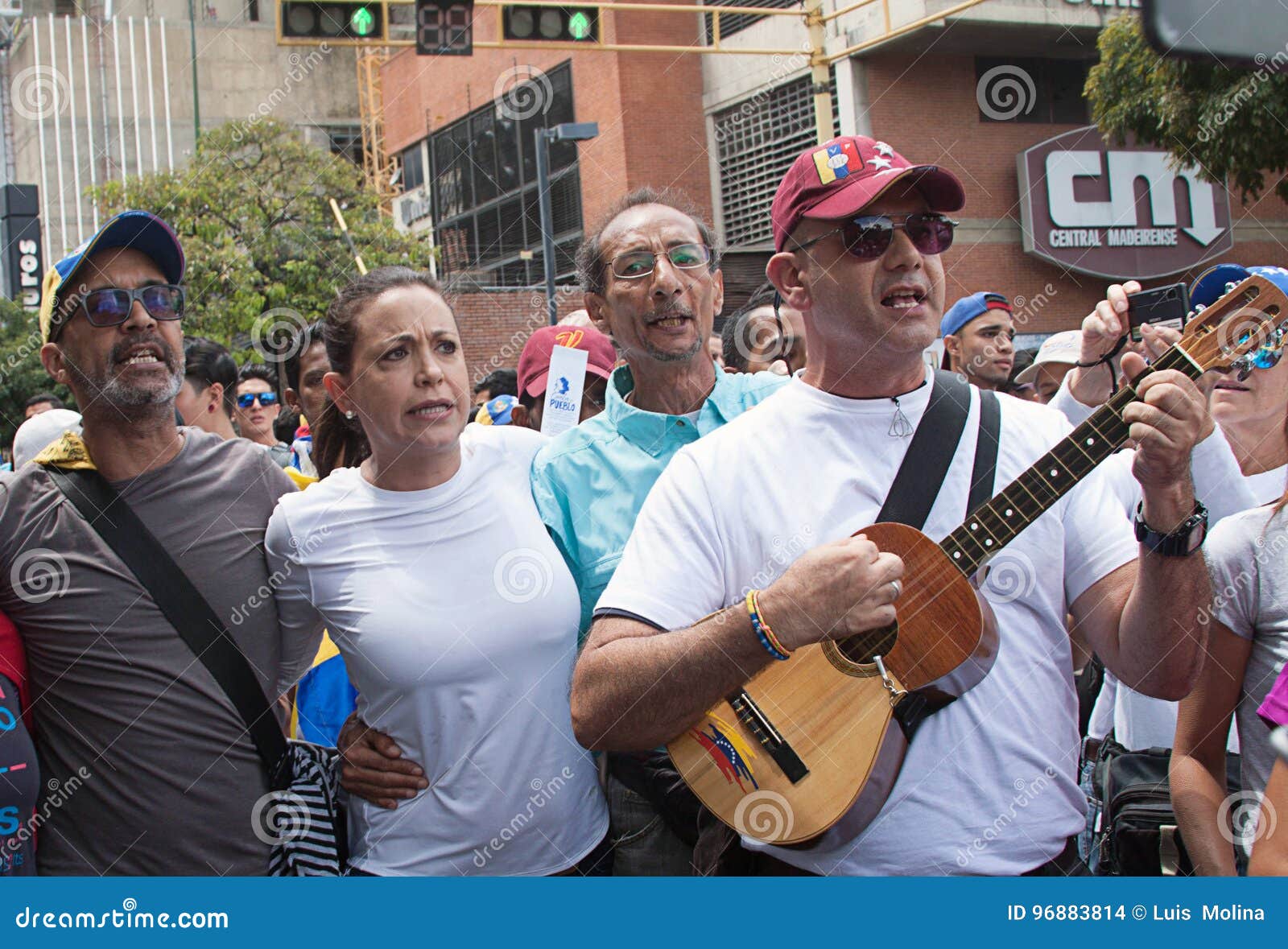
Maria Corina Machado Detained: Unveiling the Labyrinth of Venezuelan Protests
In the tumultuous political landscape of Venezuela, opposition leader Maria Corina Machado’s recent detention has ignited a firestorm of controversy and highlighted the intricate web of challenges surrounding the country’s polarized society.
Genesis of the Crisis: A Clash of Ideologies
Venezuela has been gripped by a deep-seated political divide for years, with the socialist government of President Nicolas Maduro pitted against a coalition of opposition parties. Maduro and his supporters argue that the government’s policies are aimed at promoting social justice and reducing inequality, while the opposition contends that these policies have led to rampant corruption, economic instability, and a suppression of dissent.
Machado, a fierce critic of the Maduro regime, has become a symbol of the opposition’s defiance. She is known for her outspoken activism and her willingness to challenge the government’s authority. Her arrest on January 24, 2023, sparked widespread protests and international condemnation.
The Importance of Context: Understanding the Protests
The protests triggered by Machado’s detention are a culmination of years of pent-up frustration and discontent. The Venezuelan people have been suffering from a severe economic crisis, characterized by hyperinflation, chronic shortages of basic necessities, and a collapse in the healthcare system. Many Venezuelans blame the Maduro government for these problems and see Machado’s arrest as an attempt to silence dissent and prevent political change.
“The protests are not just about Machado,” said Carlos Melo, a political scientist at the University of Central Venezuela. “They are a manifestation of the deep-rooted problems that Venezuela is facing. The people are fed up with corruption, economic mismanagement, and the suppression of their rights.”
Criticisms and Counter-Arguments: A Polarized Debate
The government has condemned the protests as acts of terrorism and sabotage. It has accused the opposition of being funded by foreign powers and seeking to overthrow the government through violence. The opposition, in turn, has accused the government of using excessive force against protesters and violating their constitutional rights.
“The government’s response to the protests has only served to further alienate the people,” said Human Rights Watch. “Security forces have been using tear gas, rubber bullets, and even live ammunition on unarmed protesters.”
The government’s supporters argue that the opposition is using the protests as a pretext to destabilize the country and seize power. They point to the violence that has accompanied some of the protests, including the burning of government buildings and looting shops.
“The opposition is trying to create chaos and terror in the country,” said Jose Vicente Rangel, a prominent government spokesperson. “They want to topple the government and install a right-wing dictatorship.”
Seeking Solutions: A Complex Path Forward
The situation in Venezuela is complex and there are no easy solutions. Both the government and the opposition need to compromise if they want to resolve the crisis and build a better future for the Venezuelan people.
“The government must address the legitimate grievances of the people,” said Melo. “This includes ending corruption, improving the economy, and respecting human rights. The opposition, in turn, needs to renounce violence and participate in a peaceful and democratic transition.”
The international community can also play a role in facilitating dialogue between the government and the opposition. The European Union, the United States, and other countries have expressed their concern about the situation in Venezuela and have called for a negotiated solution to the crisis.
Conclusion: A Crossroads for Venezuela
The detention of Maria Corina Machado has ignited a firestorm of protests and highlighted the deep-seated challenges facing Venezuela. The country is at a crossroads, with the potential for either a peaceful resolution to the crisis or a descent into further chaos and instability.
The government and the opposition must find a way to compromise and find common ground if they want to build a brighter future for the people of Venezuela. The international community should continue to support efforts to promote dialogue and a peaceful resolution to the crisis.
The future of Venezuela rests on the ability of its leaders to put aside their differences and work together for the common good of their people.
